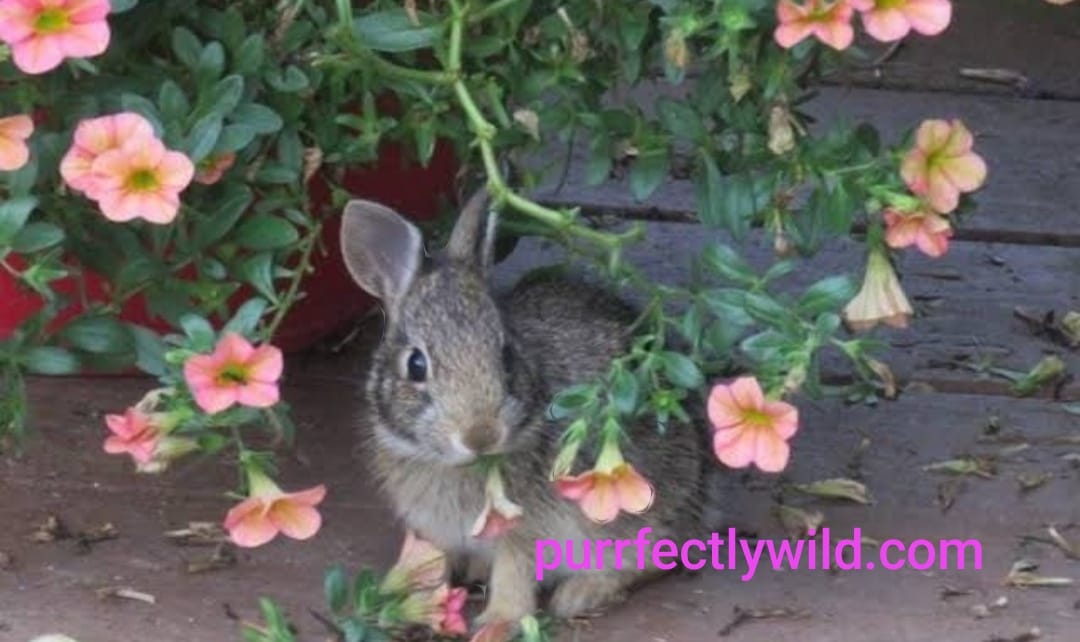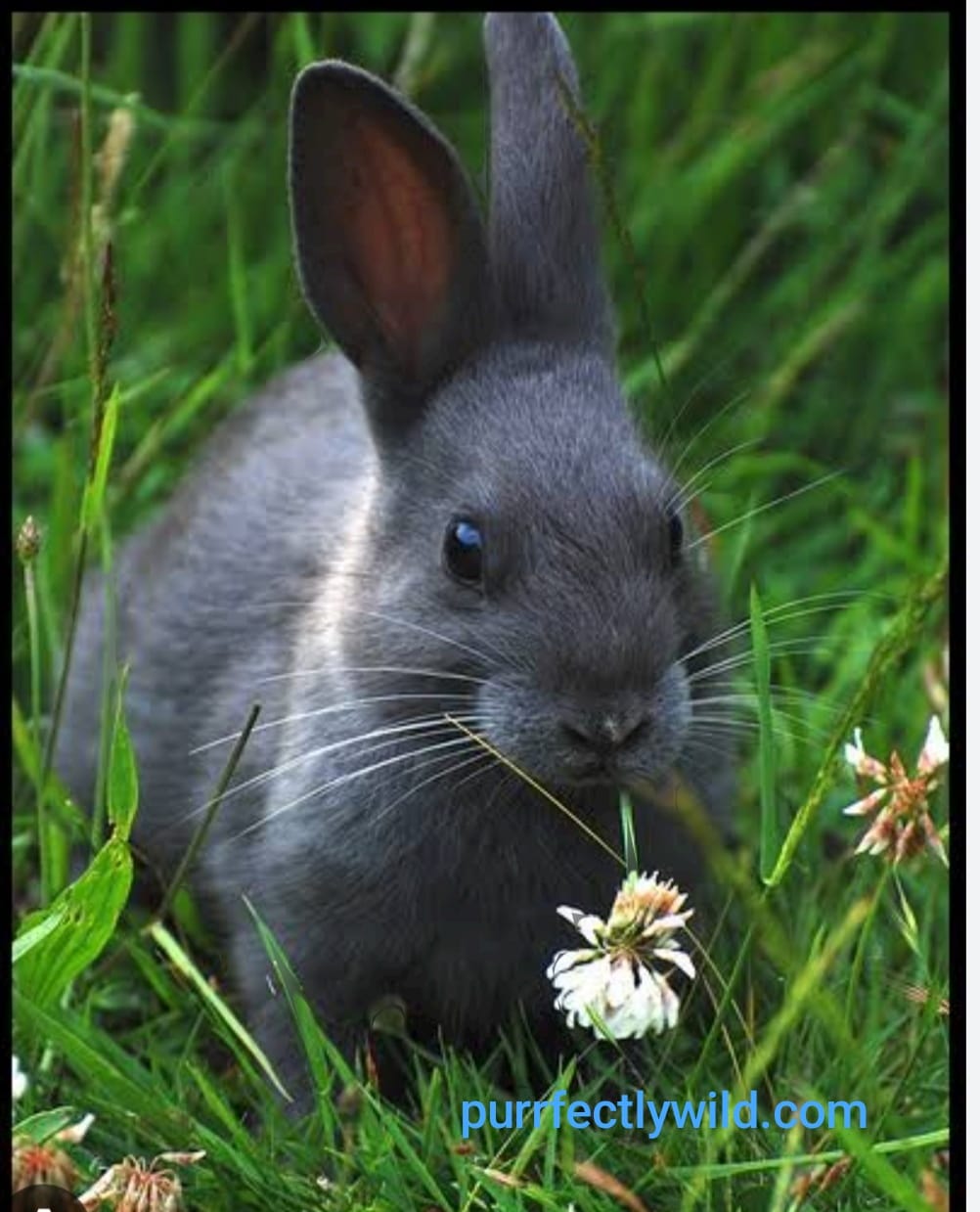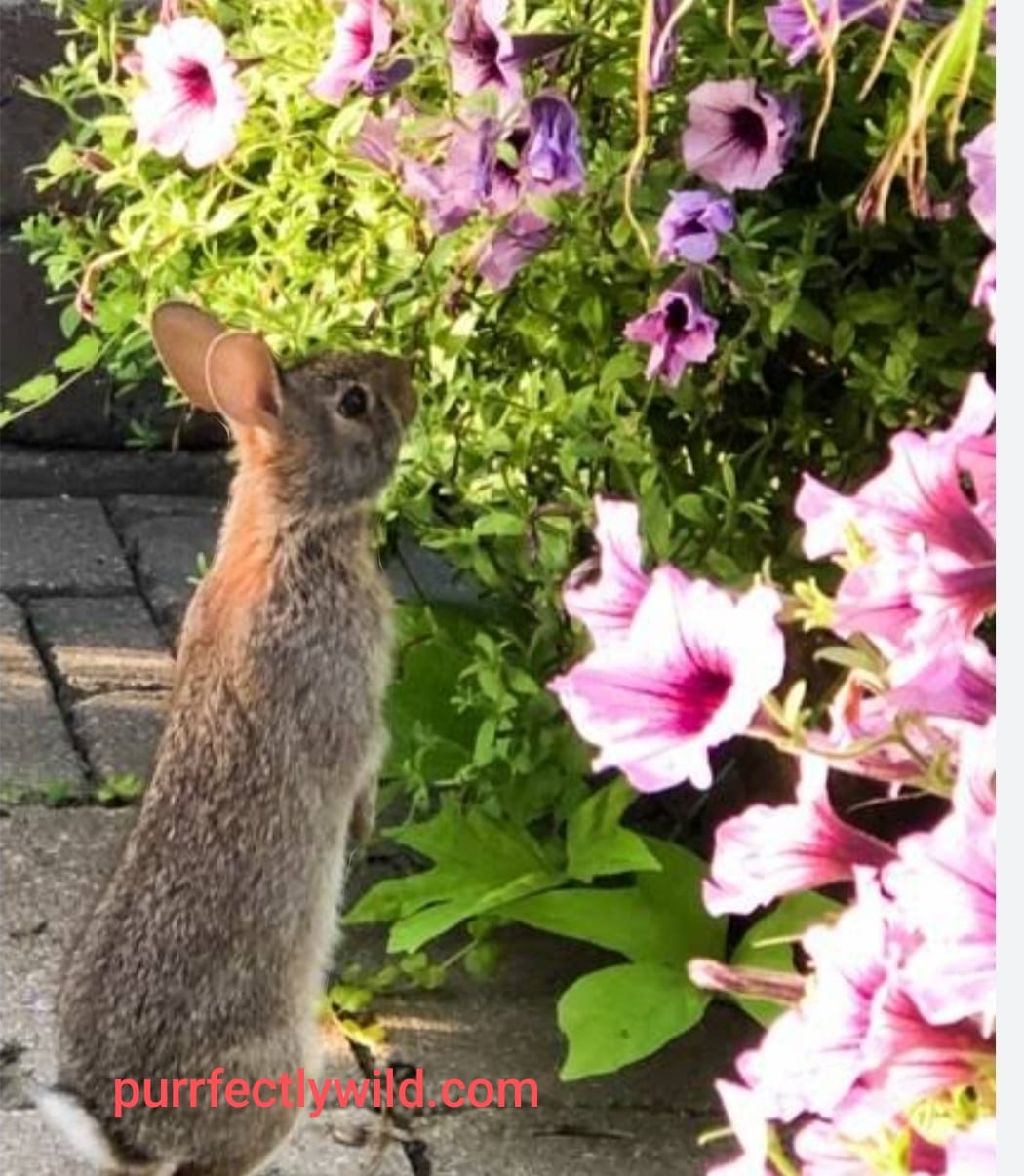Aside from economics rabbits are also one of the most curious creatures, they have a penchant for nibbling on plants and if left unsupervised can munch through some really expensive things as well such is life with our fluffy little fur balls often chomping their arched-over tulip bulbs. Rabbits should not consume tulip bulbs as they are poisonous. This is a serious concern for people who own rabbits, are raised rabbits or work in gardens. Tulips and other Spring bulbs bring a colorful display but can easily be dug up by rabbits looking for food. To protect them try fencing off the bed or deter using sprays. Providing a variety of safe foods to forage through, such as hay or leafy greens and rabbit-safe vegetables can help. Setting up such a balanced garden, where the beauty of tulips and harmlessness to rabbits are taken into account will allow you to avoid all sorts if interference with home pets.
Introduction to Rabbits and Tulip Bulbs
With their twitchy noses and fluffy tails, rabbits are iconic little creatures that love to nibble on many different plants. This naturally inquisitive tendency and their playful behavior often lead them to garden areas where, unfortunately, they may find a tulip bulb or two very tempting. Spring bulbs are attractive in flower but might prove a dangerous treat for bunnies. One of the classic flowers that gardeners like to turn for beautiful colored beauty is a tulip. Yet, when rabbits stumble upon these bulbs and start to forage as instinct dictates it is easy prey then could eat something that they know Ill.
Rabbit | poisonous tulip bulb The bulbs from tulips contain toxins that are very dangerous and can, among other things, cause stomach problems (or worse) for your rabbit. This makes it important for rabbit owners and gardeners to understand just how dangerous tulip bulbs can be. Keeping rabbits away from these bulbs using garden fences, repellents or netting to act as deer deterrents can help save the plants and the bunnies. For rabbits, eating a mixture of safe and nutritious foods such as hay or green leafiest can keep them from chewing on potentially toxic plants. The challenge between rabbits’ natural inquisitive instincts and the desire for protecting garden plants is key to keeping both satisfied.

Overview of Rabbits as Herbivores
Rabbits — True Herbivores While rabbits are true herbivores (they only eat vegetation). Always munching on vegetation, grasses, leaves and vegetables. That never ending need to graze is good for their digestive system because rabbits depend on high-fiber foods, such as hay since it helps wear down teeth and aids in digestion.
Rabbits eat plants such as grass, leafy greens in the wild and also tend to explore many other different types of plants e.g. tulip bulbs that can lead to poisoning them While tulip bulbs would also be an excellent snack for Rabbits, they are very toxic to rabbits. But keep in mind that they are not safe for all plants even though their meal comes from the plant world. Rabbit owners and gardeners should take precautions to ensure their rabbits eat what they can, such as hay, leafy vegetables (as in the image above) or purchased rabbit treats.
Significance of Tulip Bulbs in Gardens
Tulip bulbs are gems of gardens with their bright hues and lively flowers which make a patch look visually attractive. Gardeners love their flowers for the grace and cheer they offer when that pop of color returns each spring. Apart from serving as common model organisms in plant genetics, tulips are valuable garden plants, producing some of the most beautiful flower beds and decorative borders due to their variety of colors.
Tulip is a delicate flowering plant that requires care and patience on the part of gardeners to be initially planted (usually as bulbs) and then blossom steadily over time. Due to their beauty and the effort that goes into growing them, tulip bulbs are now a sought-after commodity in gardens everywhere. Which is the cause of so much irritation when these tasty plants are chewed by wandering hungry rabbits. As no one wants to see their blooming tulips disappear over night, protecting blubber ties a real concern with the invasion of rabbits in our yards.
Understanding Rabbit Behavior and Dietary Habits
The feeding habits of rabbit are very unique which also reflects in their herbivore dietary nature. As a natural grazer, any time not spent eating is dedicated to munching leaves and the soft vegetation. They should be fed mostly high-fiber foods, like hay, grasses and leafy greens to keep their digestion and dental health in check.
Rabbits have constantly growing teeth — they depend on regularly chewing fibrous materials to trim their long-standing dentition and avoid dental problems. Not to mention, a tender belly that needs plenty of fiber.
They are curious eaters and often explore their area by tasting other plants, sometimes leading them to non-edibles or items that can hurt them. During their foraging and exploring, this instinct can lead to them eating plants that are not safe for Rabbits so it is critical as pet owners or gardeners we make sure they have access to the right foods only.
Rabbit’s Natural Diet in the Wild
Wild rabbits primarily eat grasses, and forbs in the summer… The high fiber content of these foods is great for their digestive system to keep it healthy and also help wear down those teeth. This is their primary source of nutrition and the main fiber component they need, mostly grasses or leafy plants.
The species is as well notorious for its voracious appetite, thus even the leaves of tulip bulbs can end up in a wild rabbit´s stomach. Wild rabbits are known as opportunistic feeders so if there is nothing left for it to eat then yes that new plant might be tried, although not eaten clearly going by what we have witnessed in our own garden. That thus exploratory behaviour to find new food, but less beneficial if they consume toxic plants like tulip bulbs. Knowledge of their natural diet is essential to managing and caring for them in captive situations, as well as when allowing them access to environments with cultivated plants.

Curiosity and Foraging Behavior in Rabbits
Aside from being natural inquisitive creatures and genetic-trap-for-escape-feed-me seeds, rabbits are very instinctual about their space requirements. These creatures love to forage and will eat just about anything, which encourage them to sneak a bite of whatever comes into their view. This natural inquisitiveness means that if the plants rabbits have access to a range of different items, they may try tulip bulbs out, even though it is not within their usual diet.
The same exploratory nature that helps them forage in the wild can lead or pets to ingest deleterious plants when kept as house hold animals. Bunny-proofing and offering a healthy rabbit diet can indeed regulate their inquisitiveness to go with being well.
.
Potential Risks of Rabbits Eating Tulip Bulbs
Feeding tulip bulbs to rabbits can be potentially dangerous. This can upset a rabbit’s digestive system, leading to vomiting, diarrhea and abdominal pain because it contains harmful materials which provide toxicity. Eating these bulbs can cause significant discomfort and medical care may be necessary. Tulip bulbs are poisonous and can do harm to the overall health of a rabbit, so it is important not let any rabbits near these plants. Prevent these effects by keeping tulip bulbs out of your pet’s reach so that it keeps your furry friend safe and healthy.
Toxicity of Tulip Bulbs for Rabbits
Rabbits Eggs: Tulips bulbs contain a toxin for rabbits. These substances can lead to severe stomach upset, like vomiting and diarrhea. These toxins can interfere with the rabbit’s digestive system and sit in their intestines, causing bloating issues. Severely infected Ingesting tulip bulbs can even necessitate veterinary intervention.
How to Protect Your Garden and Tulip Bulbs from Rabbits
In order to ensure the safety of your garden – while at the same time, keeping those fluffy little nibblers happy and well-fed—follow these tactics: relegate rogue rabbits foraging for tulip bulbs as a midnight snack.
Physical Barriers and Fencing
Erecting walls or fences around your garden will help keep these rabbits away, which is very important to ensure the safety of those little tulip bulbs.
Repellents and Deterrents
Scent deterrents to natural repellents, there are a variety of things you can try to keep the bunnies away from eating your tulip bulbs. These furry foragers will keep flappy predators away from your garden’s lovely flowers.
Healthy and Safe Rabbit Feeding Options
Hoping to dish up some tulip bulbs for your fluffy friend? Hold your horses! Should I hold you bunnies in? Rabbits don’t touch tulip bulbs for their beautiful flowers and nothing else. However, do not worry as there are many other choices to satisfy your rabbit here.

Conclusion and Final Thoughts on Rabbits and Tulip Bulbs
The bulbs are no match in the war between bunnies and tulip bulbs. Shame on me for being fooled by the pretty colors of these very poisonous-to-bunnies treats. Follow a diet of rabbit-safe vegetables, pellets and treats for happy little bunnies hop over! So remember, a Healthy rabbit is a Happy rabbit! On the whole, hopefully this answer has illustrated the hazards associated with rabbits nibbling on tulip bulbs and shown we need be aware of facets that pose risks to our lovely gardens as well as these popular hometown companions. With proper protection, a few available edible options (an abundance of natural food), and understanding the rabbit they will live in harmony where tulips grow among rabbits. With a few precautions, you can have the best of both worlds — your attractive to look at garden and keep pets out!
Frequently Asked Questions (FAQ)
Can rabbits eat tulip bulbs?
No, rabbits should not eat tulip bulbs as they contain toxins harmful to them.
What are the risks of rabbits consuming tulip bulbs?
Eating tulip bulbs can cause digestive issues, including vomiting and diarrhea, and may require veterinary care.
How can I protect my garden from rabbits eating tulip bulbs?
Use fences or barriers around your garden and apply natural repellents to deter rabbits from accessing tulip bulbs.
What are some safe alternatives for feeding rabbits to prevent them from eating tulip bulbs?
Offer rabbits fresh vegetables like carrots, leafy greens, and commercial rabbit pellets to keep them satisfied and healthy.


